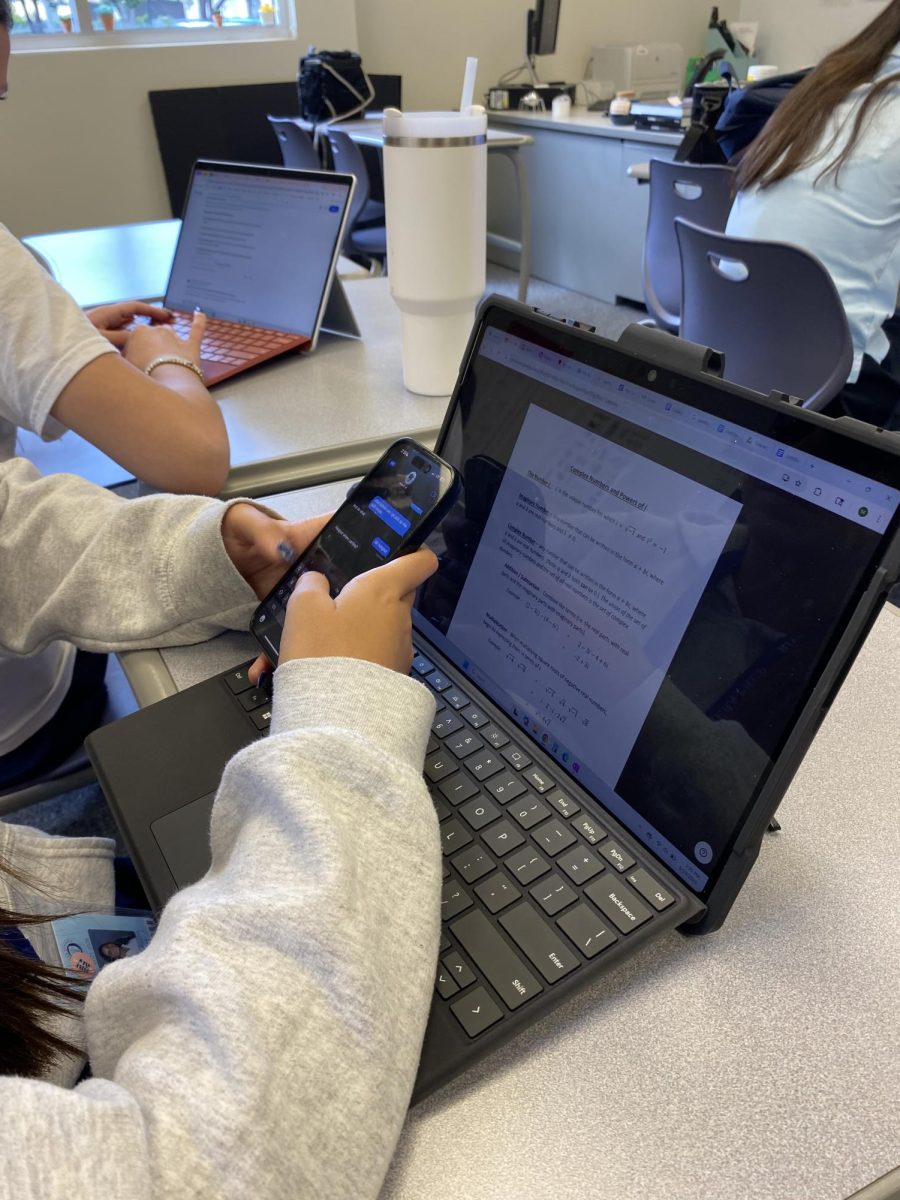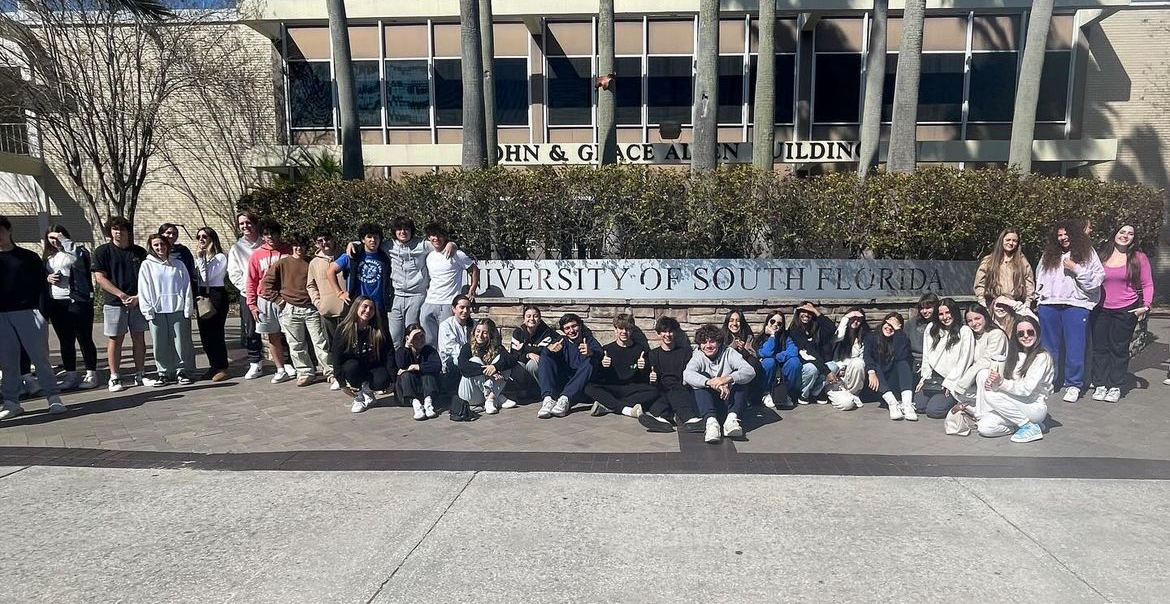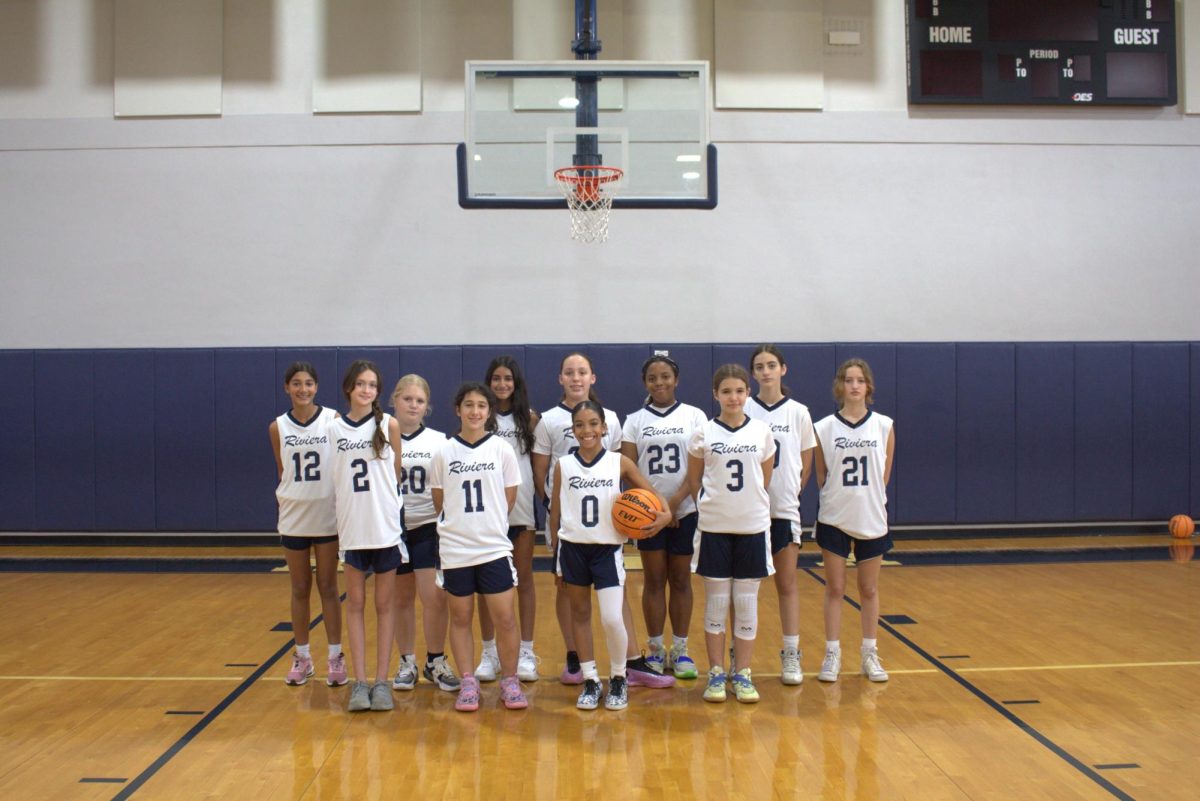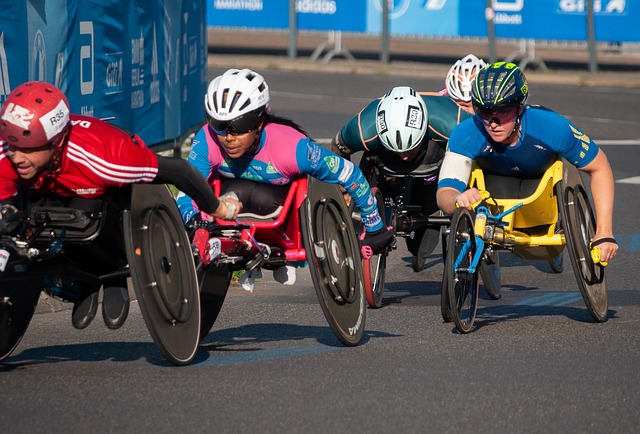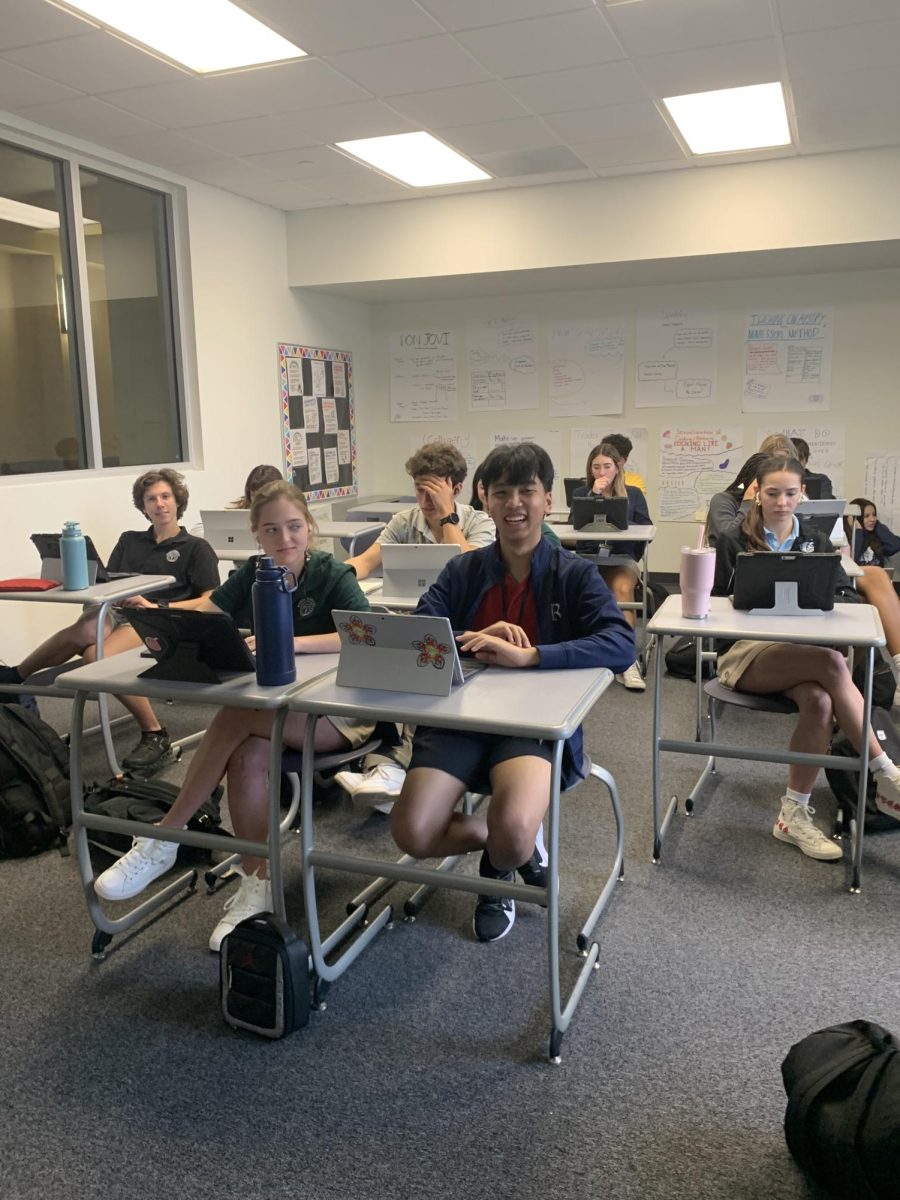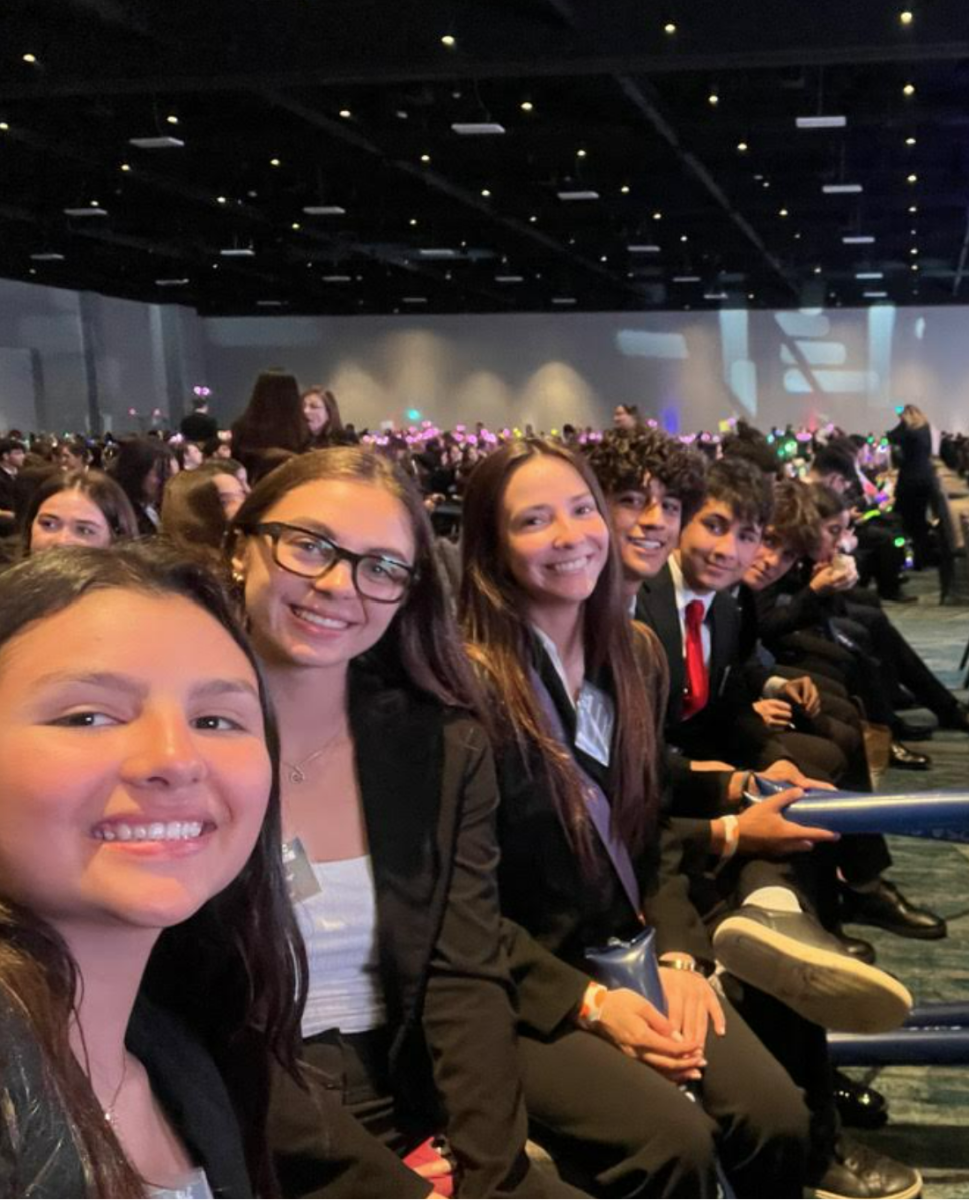College Board reports that nearly 1.2 million students took Advanced Placement, or AP, exams in 2022. While AP exams are commonly integrated into high school routines, they are met with mixed feelings. In various corridors, it’s not uncommon to hear students expressing diverse opinions on the College Board and the AP exams. “I think the reason why some AP classes do not look appealing or enjoyable is because of the College Board,” said senior Patricia Ricci-Lambiase.
As a student, it makes me wonder: Are AP exams worth it? Do AP exams significantly boost a student’s scholarly aptitude, and do the costs outweigh the benefits?
Many students take AP classes because of the preconceived notion that it benefits them in the college admissions process. In order for AP exams to be worth all the stress, they have to boost a student’s level of academic rigor significantly. Academic rigor is one of the most critical factors in college admissions, and students need to show that they have attempted difficult classes. “A strong academic record, including advanced courses, can positively influence a college application, showcasing a student’s preparedness for the challenges of higher education,” said Marie Castellanos, Director of Counseling.
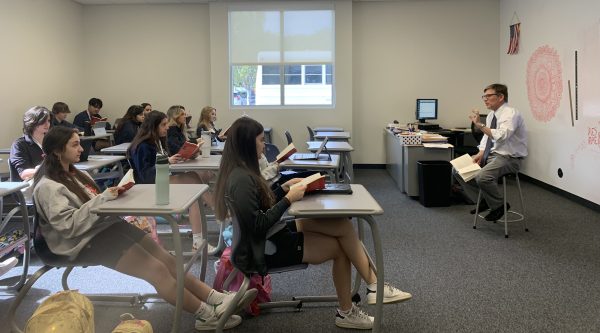
But does this mean students should take every AP they can if they want to get into college? Not exactly. “If a student takes a substantial number of AP courses but receives Cs, it may raise questions about their ability to manage a rigorous academic load. Quality of performance in challenging courses is often weighed more heavily than sheer quantity,” said Castellanos. College admissions officers can tell when you are not being genuine. Although AP classes can help you in the college admissions process, it might be detrimental for a student to take many AP classes that they do not have an interest in.
But what if your school doesn’t offer AP courses?
If you go to a high school that offers little or no APs, don’t worry; course rigor is relative to the courses offered at your high school. “Admissions officers understand that course offerings vary significantly among high schools, and they take that into consideration when evaluating applicants. Instead of focusing on AP courses, colleges will review if the student is taking the most challenging courses available at their high school,” said counselor Maria Carballo. Students with no available APs at their school will not be at a disadvantage compared to those who took multiple APs at a different school. Since Riviera offers APs, in order to maintain a rigorous academic profile, it is recommended that students challenge themselves by taking multiple AP courses. However, students should not take every AP for a GPA boost; choosing AP courses that align with their interests, strengths, and future goals makes their education more meaningful and fulfilling. This approach helps balance academic challenges with personal well-being, creating a healthier and more sustainable learning environment.
Why do colleges emphasize course rigor, and is there a correlation between taking AP classes and an increased likelihood of success in college?
Maureen Ewing and Jessica Howell sought to put this question to rest in their study, “Is the Relationship Between AP Participation and Academic Performance Really Meaningful? The results are eye-opening. “Earning a high score on AP Chemistry, Physics, or Biology Exams has the strongest relationship with first-year GPA, while earning a three or higher on an AP Exam is similar to the effect found for an additional hour of studying each weekday.” It was previously revealed that “an additional hour of studying each weekday was associated with a first-year GPA that was 0.18 higher.” In other words, getting a three or higher on an AP exam positively affects freshman-year GPAs by 0.18 points. AP students enjoy a decent advantage, as taking these classes enhances college readiness and often leads to a significant GPA increase, highlighting the positive impact of rigorous coursework on academic achievement
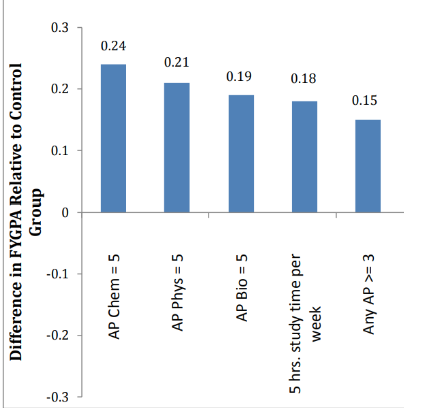
On the other hand, while AP classes provide intellectual challenges and college-level coursework, a significant disadvantage is the possibility of stress and burnout. Researchers Shannon Suldo, Elizabeth Shaunessy-Dedrick, John Ferron, and Robert Dedrick evaluate the correlation between advanced courses and stress. Surveying over two thousand AP and IB students in their article, “Predictors of Success Among High School Students in Advanced Placement and International Baccalaureate Programs.” The researchers found that approximately 71% of AP and IB students experienced symptoms of burnout, but found that overall life satisfaction was equal to that of their non-AP peers. “The mean score for life satisfaction [of AP/IB students] was 4.26 (range = 1.00–6.00), comparable to the average score (4.24) [of students who did not take AP/IB]…A mean score of ≥4.0 is generally considered in the positive range.” While AP/IB students are more susceptible to burnout, they share an equal contentment for life with their grade-level peers. The researchers’ statistics emphasize the need for an education approach addressing burnout and mental health amid challenging coursework. In response, Ethan Fetherston, a senior with AP experience, shares a quick tip: “The best way I have found to prevent burnout is to listen to music while I study and do homework so that it’s less tedious and more enjoyable.”
AP coursework may have its negative effects on mental health, but the positive effect it has on GPA and college admission makes the experience advantageous overall. Even the most dissenting students, like Patricia Ricci-Limbiase, can admit to the nuance present in taking AP classes, “setting College Board aside, I usually have fun in my AP classes like psychology and government,” said Ricci-Limbiase.
So to answer the question, yes! Taking APs in high school is worth it for future benefits. It seems our teachers and counselors were right all along.
1Ewing, Maureen, and Jessica Howell. “College Board Research.” Is the Relationship Between AP Participation and Academic Performance Really Meaningful? , College Board Research, 2015, research.collegeboard.org/.
2Suldo, Shannon M., et al. “Predictors of success among high school students in Advanced Placement and international baccalaureate programs.” Gifted Child Quarterly, vol. 62, no. 4, 2018, pp. 350–373, https://doi.org/10.1177/0016986218758443.










